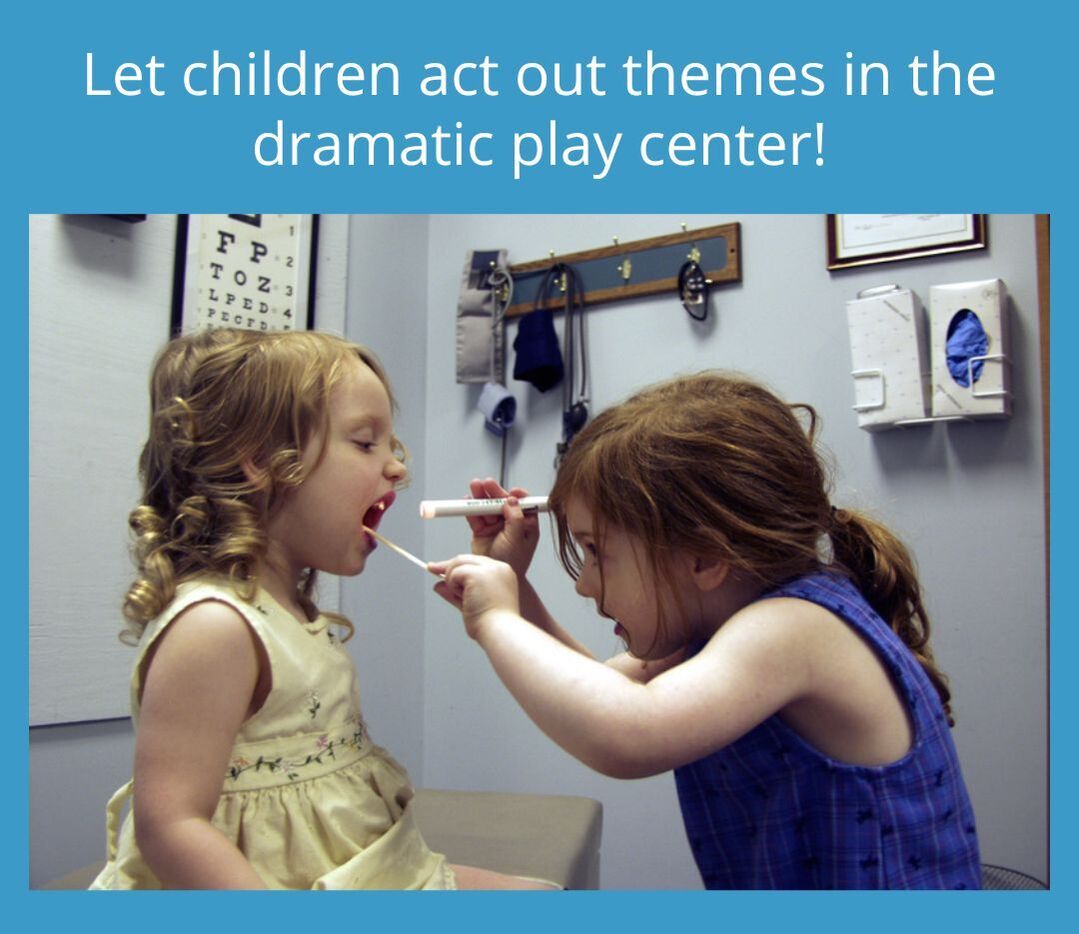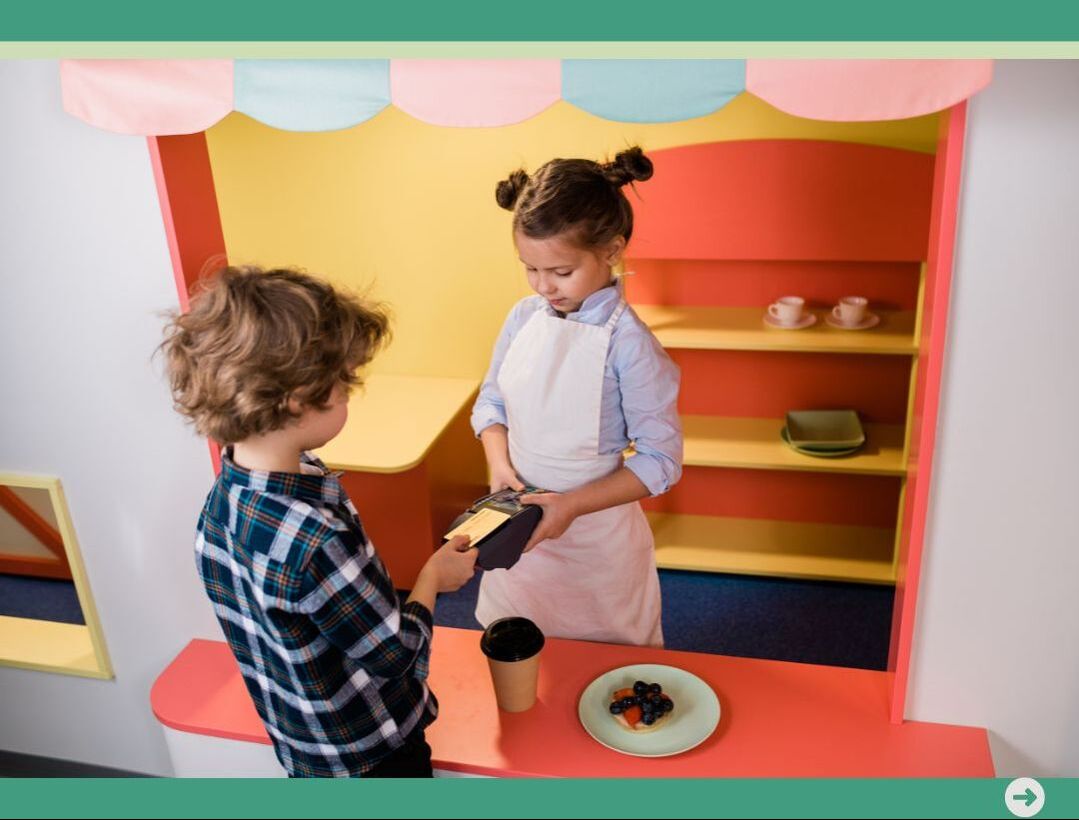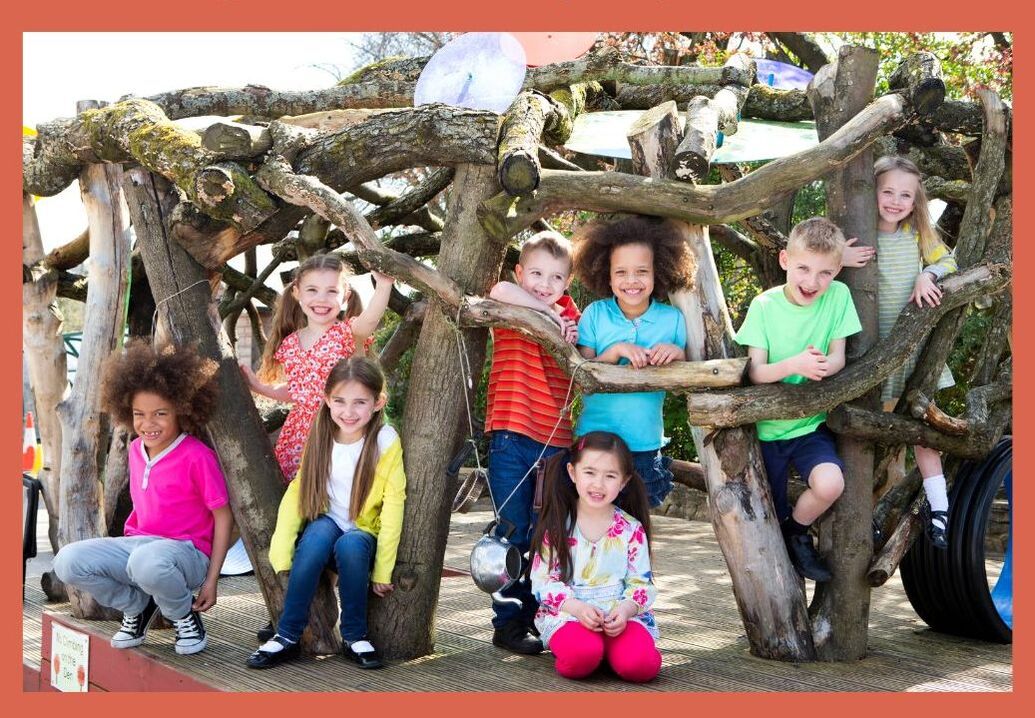|
When we think of dramatic play for preschoolers, we often jump straight to deciding which theme we'll use. Housekeeping or home centers are by far the most common theme for dramatic play, and they are often the best themes to start with when children are new to your classroom or program. But besides brainstorming fun pretending set-ups - which I must admit is the fun part for me - there are also other things to think about. Here are five things to consider when setting up or enhancing your dramatic play center: 1. Help your children imagine new futures for themselves!"What do you want to do when you grow up?" It's a common question to ask children. Do your children see the immense world of possibilities for themselves? It's part of our jobs to open our children's world to what could be and to encourage them to dream bigger if they chose to. Especially for children from marginalized groups or disadvantaged backgrounds, we can expose them to new possibilities they may be unaware of. We can help them believe that they can do whatever work they dream of - as scientists, athletes, doctors, astronauts, etc. The dramatic play center is the perfect place for trying out these roles! A quote from Harriet Tubman reads, “Every great dream begins with a dreamer. Always remember, you have within you the strength, the patience, and the passion to reach for the stars to change the world.” As teachers, our dreams are for our children to change the world for the better. The challenge for all of us adults is to help children develop that strength, patience, and passion - so they feel capable of reaching for the stars and realizing their own potential! 2. Involve the children in creating the themes for their dramatic play!Together you can choose themes based on the seasons, holiday traditions, things you are learning about, or the interests of the children:
3. Intentionally set the stage for fun and learning.Define the dramatic play area
Provide a variety of dress-up clothes and props Change the theme and add and remove props to maintain interest. Here are just a few ideas:
Add lots of “loose parts”
Include multicultural materials
Always consider safety when choosing materials to include in centers! 4. Bring dramatic play outside, too!Do you have a designated space for an outdoor dramatic play center, such as a playhouse, boat or other structure? Enhance the area with props! If you don’t have a specific place for pretending, you can still encourage dramatic play during outside time by bringing a basket of props with you. Most themes you use indoors (housekeeping, doctor's and vet's offices, stores, etc) can probably be adapted to outdoor play as well. Just choose materials which are washable and more durable to create enticing invitations for social and pretend play. Also, keep the number of props manageable if you will need to bring them back inside. Here are a few outdoor-themed dramatic play ideas you may want to explore as well:
5. Let your dramatic play centers live up to their purpose!When children pretend by acting out scripts, scenes, and roles, they are engaging in socio-dramatic play - an especially valuable type of play. Besides having fun (which has value in itself!), children are learning social skills that include: communication, cooperation, problem-solving and perspective taking. For children to best learn from socio-dramatic play, they need lots of uninterrupted time to develop their play scripts, negotiate roles with other children, and enjoy them acting out together. This uninterrupted time means we should step back and let children direct their own play! This doesn't mean we never interact at all. Here are some ways we adults can provide support for successful dramatic play: -having personal conversations with every child every day - just not when they are immersed in play with their peers -using teachable moments to model, coach or mediate when helping children learn to share and problem solve. -modeling safe use of new materials, then stepping back, allowing creativity in play. We hope these 5 tips help you make the most of your dramatic play centers. We welcome your comments, and we would love to hear about your favorite dramatic play themes and props! ResourcesHere are some books you may find helpful:
Greenman, J. (2007). Caring spaces, learning places: Children's environments that work. Exchange Press, Inc. Loose Parts Series:
0 Comments
|
AuthorI'm Diane Goyette, a Child Development Specialist, Trainer, Consultant and Keynote Speaker. I'm excited to share my blog! Archives
August 2023
Categories
All
|
|
Ways to Contact Us:
Schedule an Appointment |
|
Follow earlychildhoodspecialties for encouragement, teaching tips and more!
|
Follow eepworm for child-friendly posts!
|
© 2013-2024 Early Childhood Specialties LLC. All rights reserved.






 RSS Feed
RSS Feed